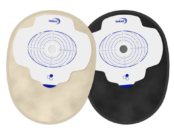IBS Diet: A Comprehensive Guide to Managing Symptoms

Introduction
I. Overview of IBS Diet

– What is IBS?
– Understanding the Role of Diet in IBS Management
– Key Components of an IBS Diet
– The Importance of Individualized Approaches
II. Types of IBS Diets
A. Low-FODMAP Diet
1. Definition and Explanation
2. Potential Benefits and Drawbacks
3. Food Exclusion Phase and Reintroduction Phase
4. Recommended Foods and Meal Ideas
B. Gluten-Free Diet
1. Link Between IBS and Gluten Sensitivity
2. Pros and Cons of a Gluten-Free Diet for IBS
3. Gluten-Free Food Options and Recipes
C. Specific Carbohydrate Diet (SCD)
1. How SCD Works in IBS Management
2. Scientific Evidence and Expert Opinions
3. Foods to Include and Avoid
D. Mindful Eating and Stress Management
1. The Mind-Gut Connection
2. Techniques for Enhancing Digestion and Reducing Stress
3. Incorporating Mindful Eating Practices into Daily Life
III. Quantifying the Effects of IBS Diet
A. Studies and Research on IBS Diet
1. Clinical Trials and Observational Studies
2. Challenges in Measuring Effectiveness
B. Symptom Tracking and Dietary Assessments
1. Common Tools for Tracking Symptoms
2. Self-Reporting and Food Diary Techniques
3. Role of Healthcare Professionals in Assessing Progress
IV. Understanding Variations in IBS Diets
A. Individualized Approaches to IBS Diet
1. Tailoring Diet Plans to Specific Symptoms and Triggers
2. Working with Nutritionists or Dietitians
B. Incorporating Personal Preferences and Lifestyle Factors
1. Balancing Nutritional Needs and Food Preferences
2. Adapting IBS Diet to Social Situations
V. Historical Analysis of Pros and Cons
A. Evolution of IBS Diet Approaches
1. Early Beliefs and Dietary Recommendations
2. Shifting Perspectives and Emergence of Specific Diets
3. Impact of Scientific Advancements and Patient Feedback
B. Benefits and Limitations of Different IBS Diets
1. Effectiveness in Symptom Management
2. Potential Nutritional Deficiencies and Risks
3. Long-Term Sustainability and Impact on Quality of Life
Conclusion
– The Importance of Individualized Approaches
in IBS Diet
– Seeking Professional Guidance for Optimal Results
– Balancing Symptom Relief, Nutrition, and Quality of Life
Through this comprehensive guide to IBS diet, individuals with IBS can gain a deeper understanding of different approaches to managing their symptoms. By exploring the various types of IBS diets, quantifying their effects, discussing differences between approaches, and analyzing the historical pros and cons, readers will be equipped with the knowledge they need to make informed decisions about their own IBS diet journey. Remember, always consult with a healthcare professional for personalized advice and support.





















